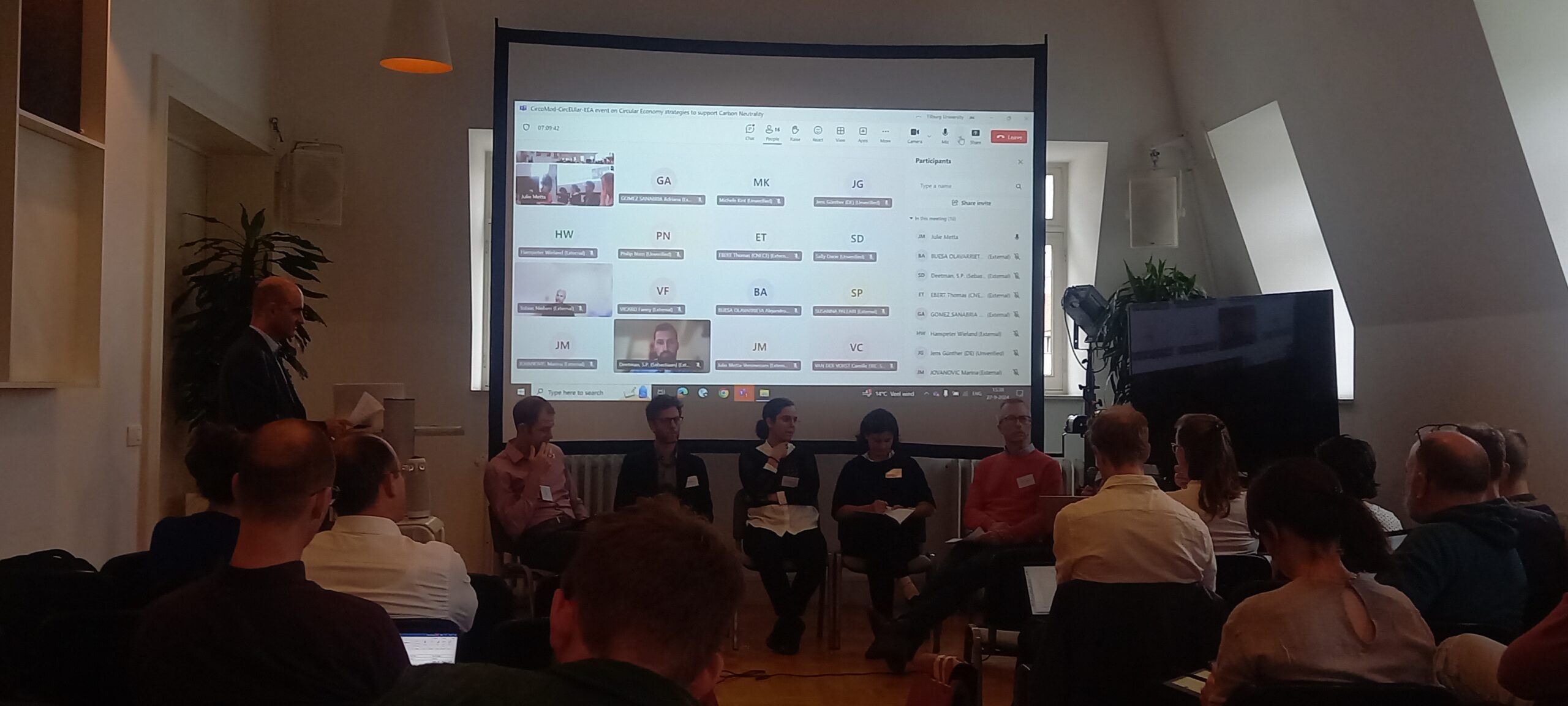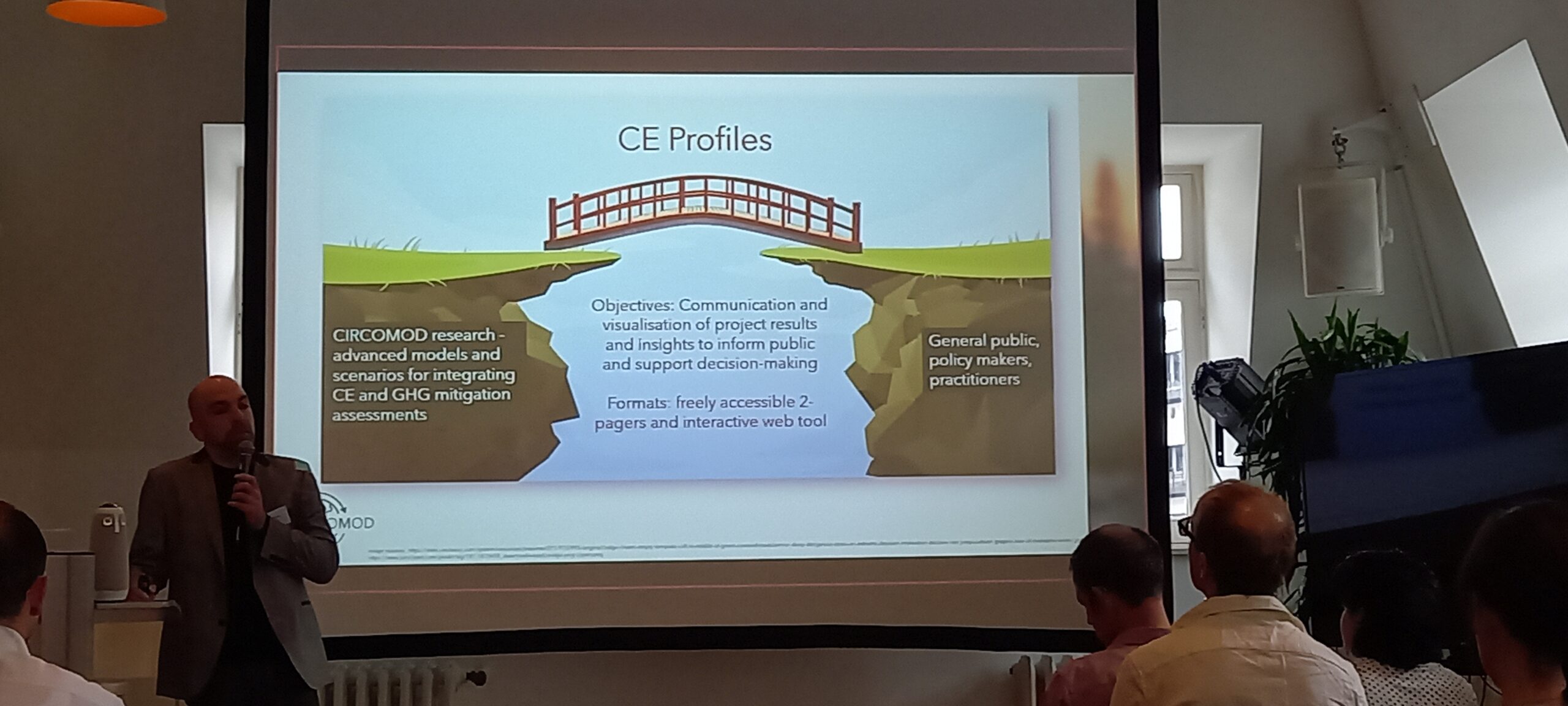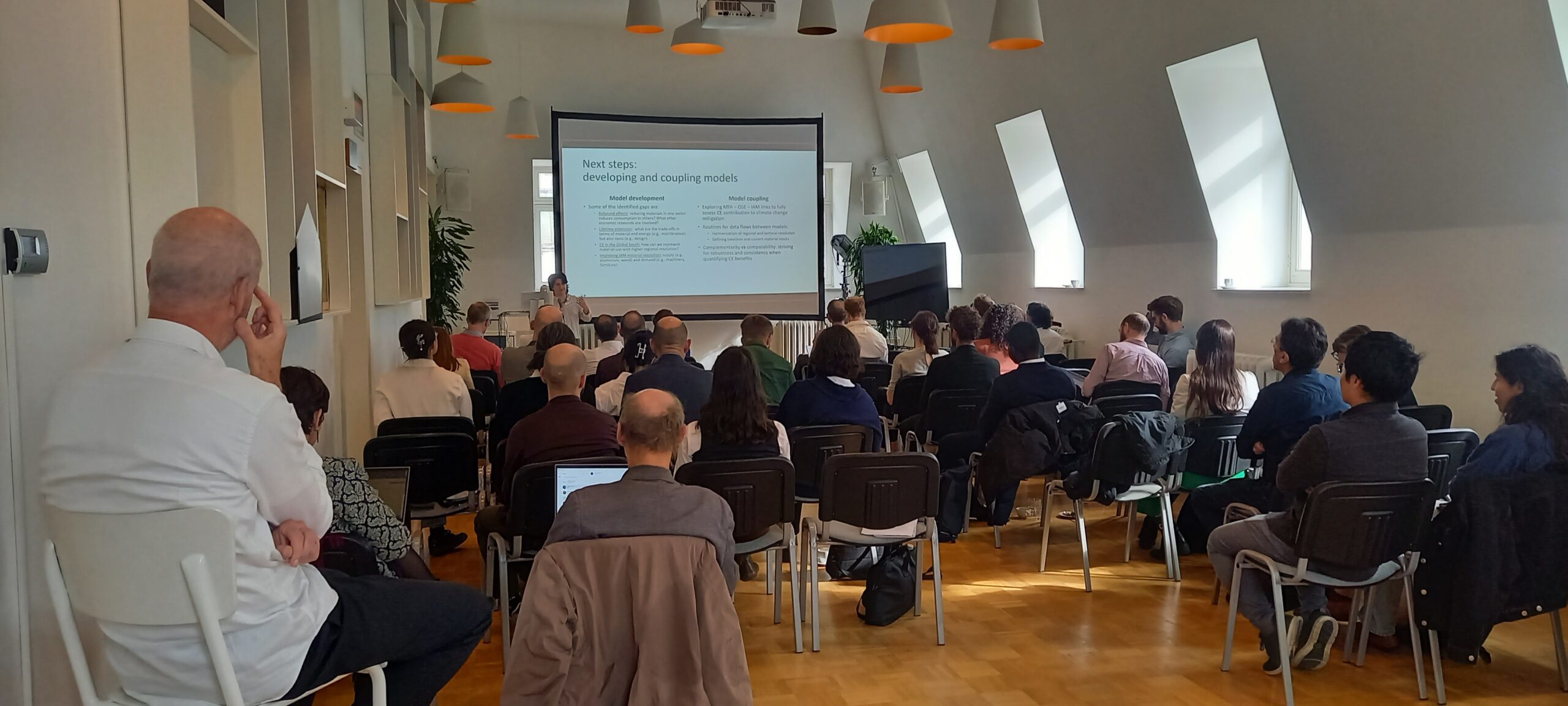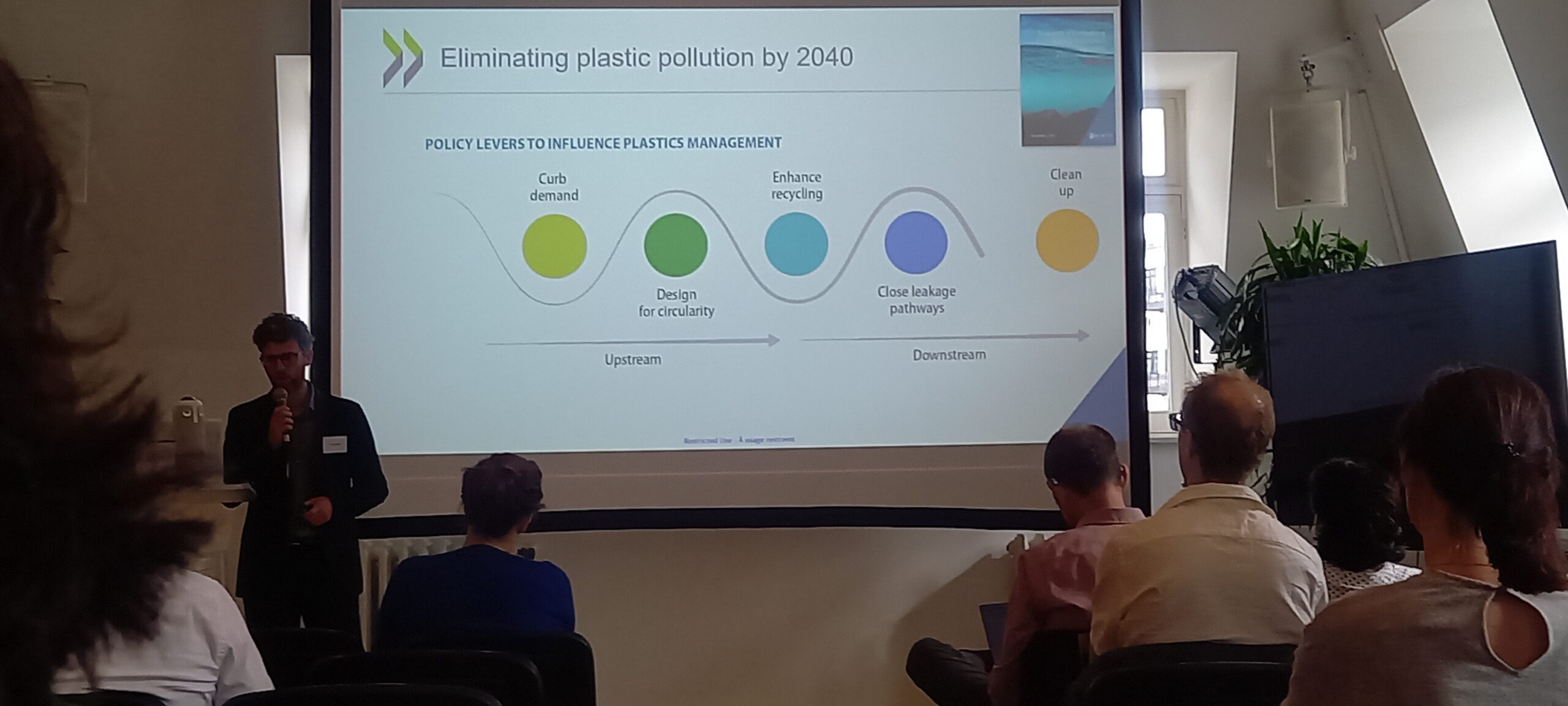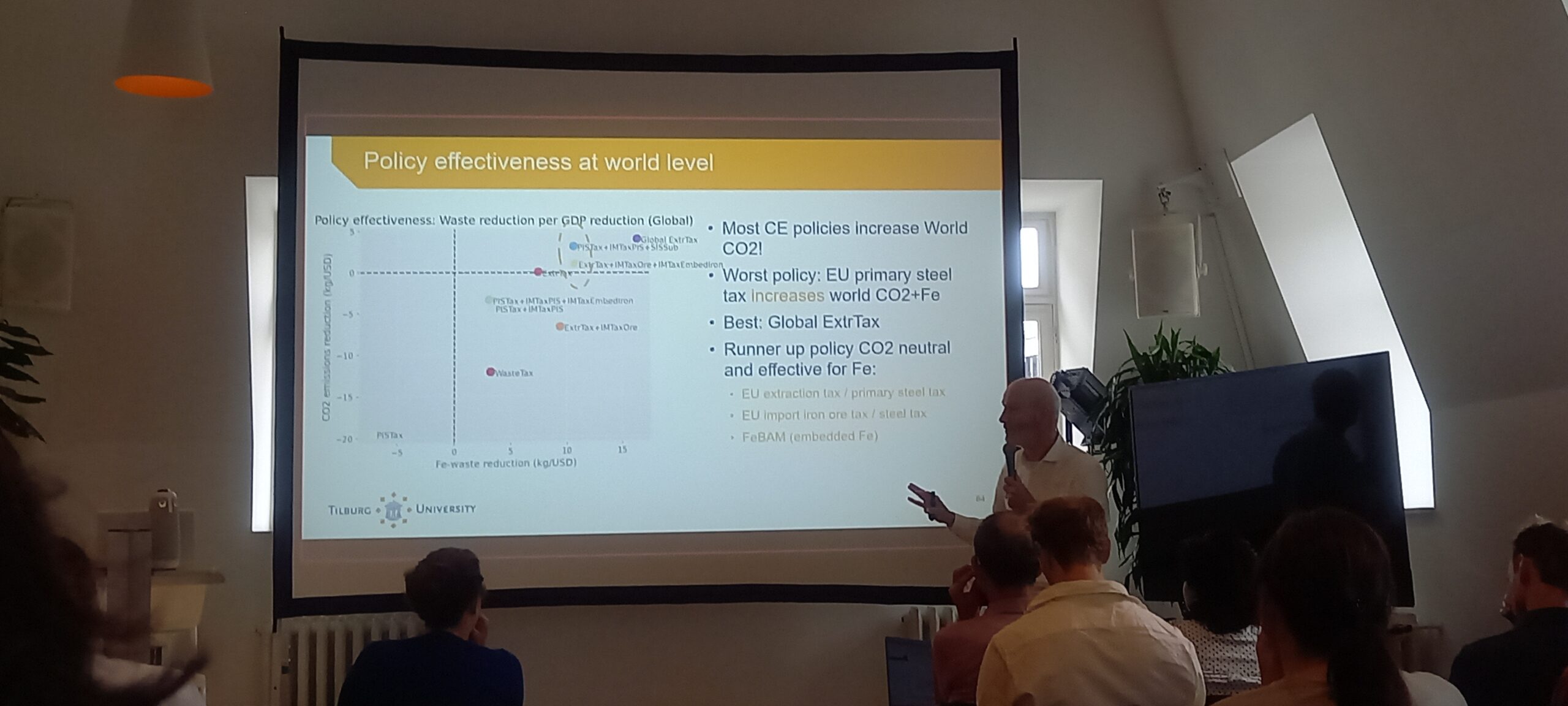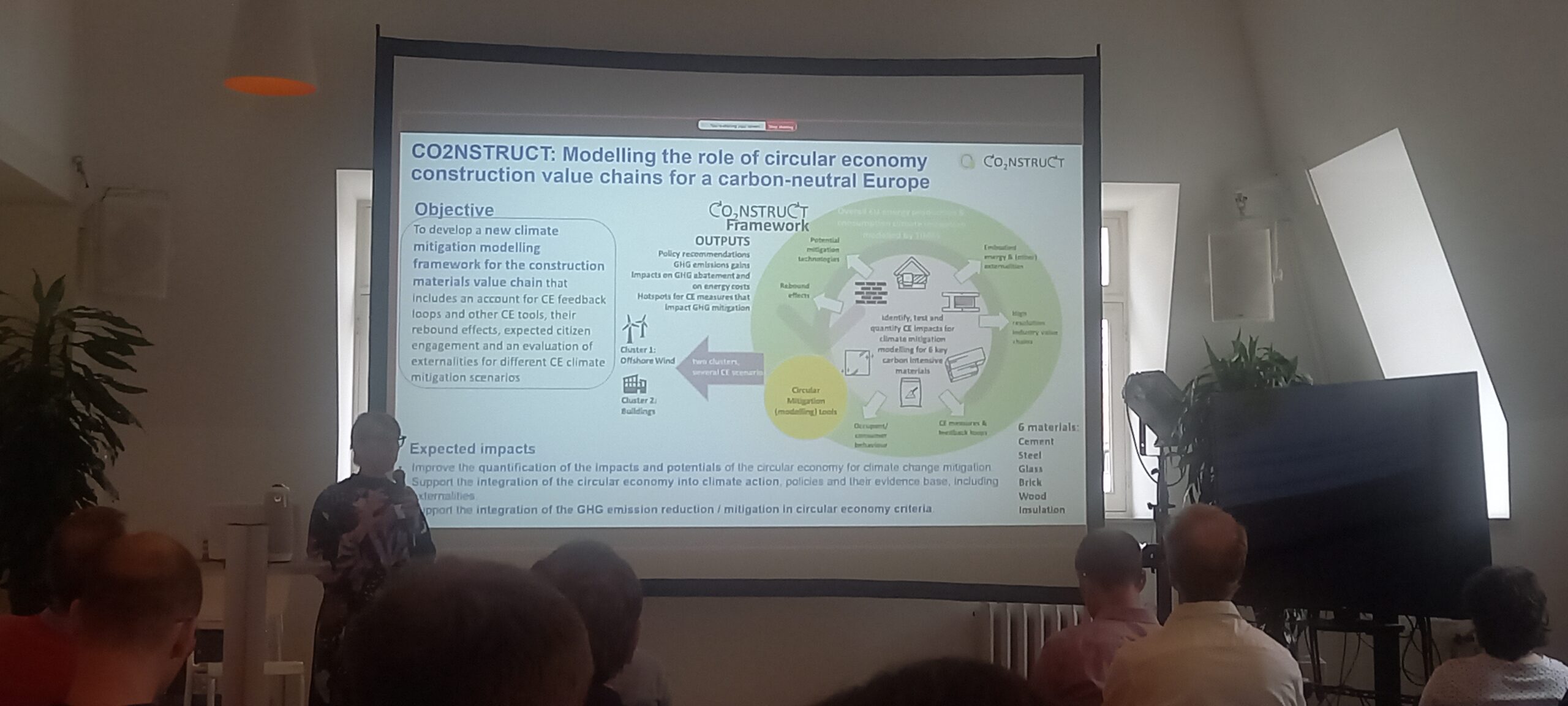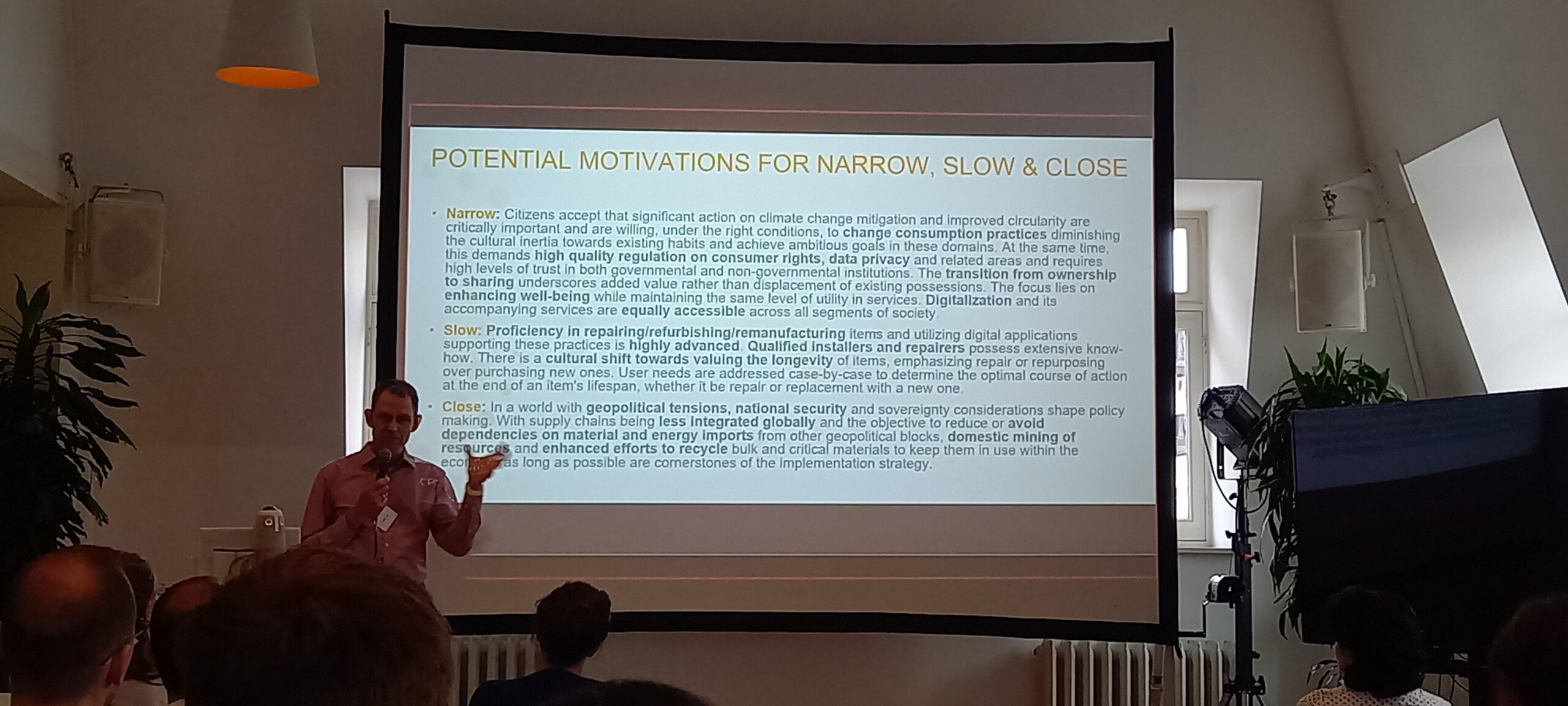
CircoMod, CircEUlar and the EEA, organised this joint event in Brussels on September 27th 2024. The event brought together scientists and researchers in academia, and analysts and officers in policy.
The aim of the event was two-fold: firstly, to share research insights on empirical data, narratives and modelling from fellow EU Horizon projects CircoMod, CircEUlar and CO2NSTRUCT, and, secondly, to facilitate a roundtable discussion around the science-policy interface on integrating circular economy measures into climate modelling.
It was impressive to see the research completed to date on empirical data (including consumer surveys, and stocks and flows), narrative and scenario design, and modelling development from across all three projects. The various presentations gave the audience a lot of food for thought. Though addressing different areas and sectors, the alignment between the three projects on their approach to the narratives and to implement circular strategies was positive and well-received.
Going forward, it will be important to continue to work closely with CircoMod and CO2NSTRUCT counterparts to ensure synergy and synthesis in findings and communication so that the results have a greater policy impact. The research is quite timely given the forthcoming Circular Economy Act of the European Commission. Its aim is to support the creation of market demand for secondary materials and a single market for waste, notably in relation to critical raw materials.
Discussions with policy colleagues from the European Commission’s DG Environment and DG CLIMA as well as from the EEA, further highlighted the need for a harmonised set of key messages, results, narratives and scenarios including climate mitigation and economic strategies as well as the co-benefits of circularity. The EEA stressed the need for results to be linked to pre-existing aims, indicator frameworks and policy agendas, and for them to speak to policy makers.
The event ended on a high with the three projects eager to further join forces and collaborate, especially on identifying data gaps and building the circularity narratives. The event provided the CircEUlar team with a lot of good insights on the next steps for ensuring further feedback loop mechanisms between academic researchers and policy officers so that modelling can facilitate the circular economy as a means of supporting the Climate Agenda.

